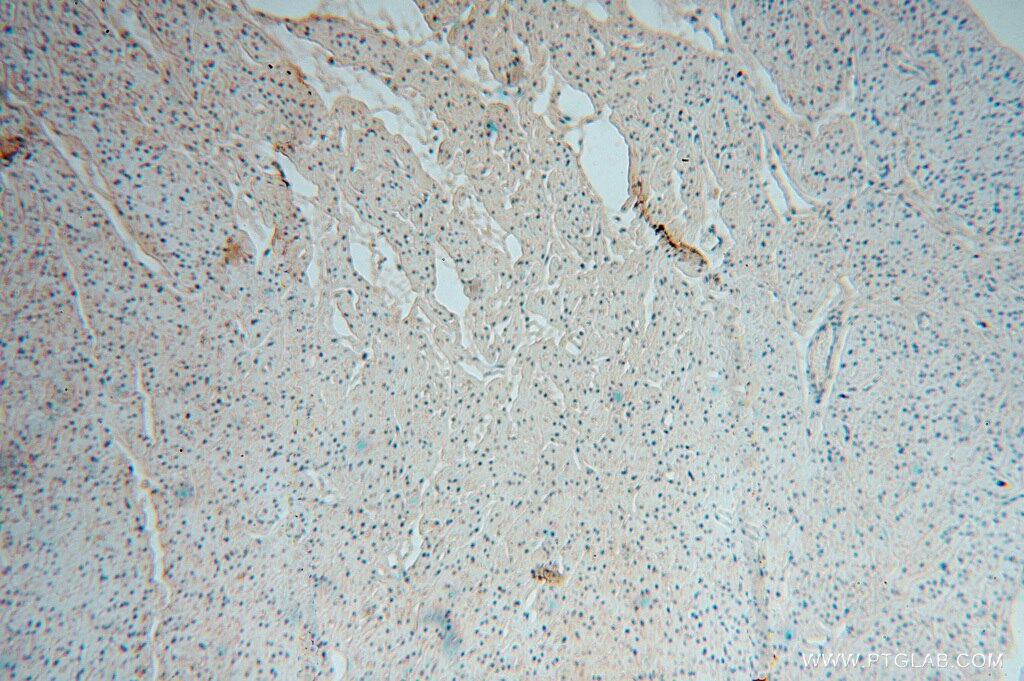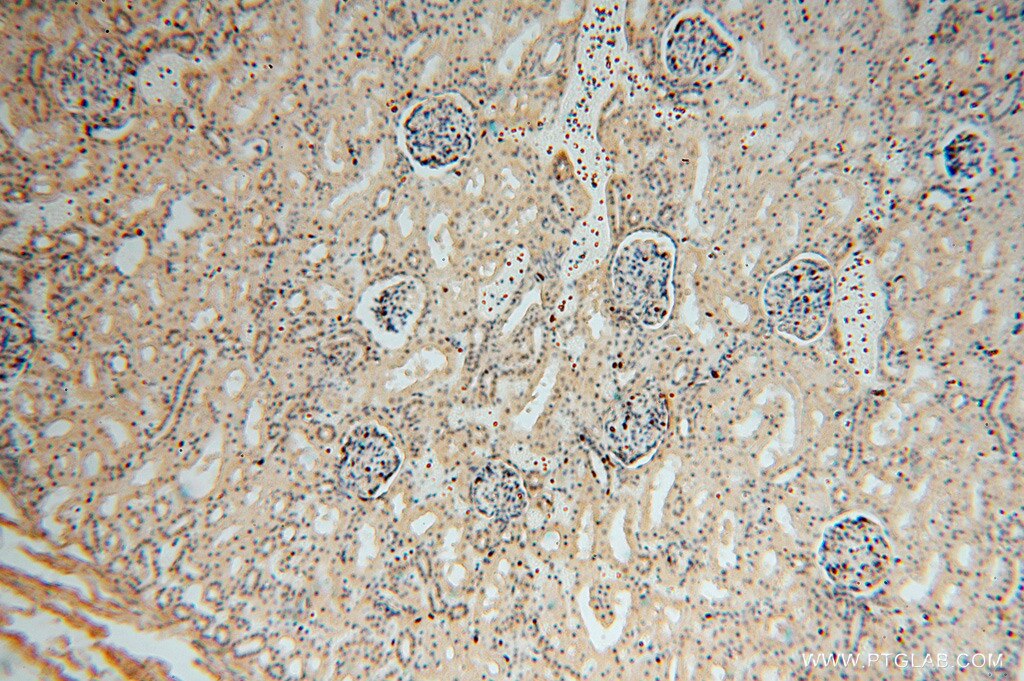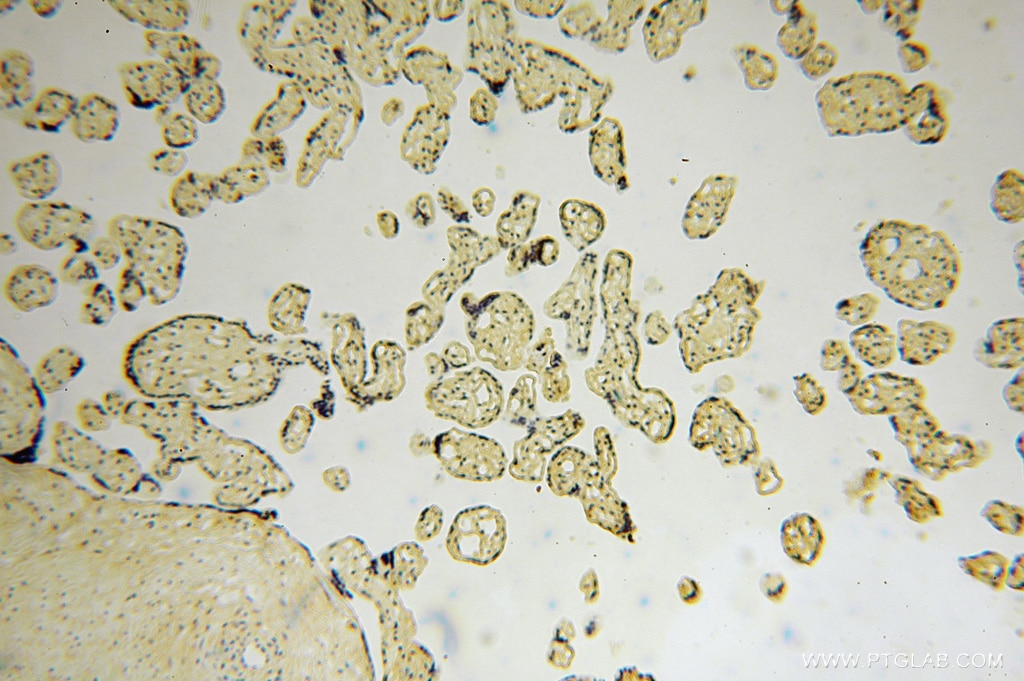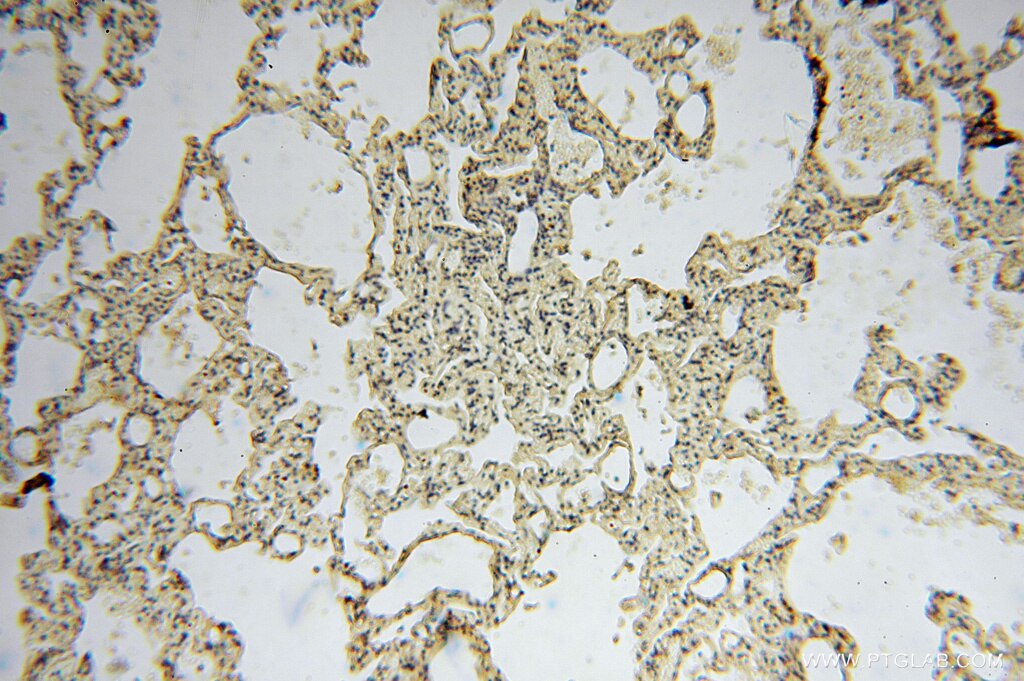CD36 Polyklonaler Antikörper
CD36 Polyklonal Antikörper für ELISA
Wirt / Isotyp
Kaninchen / IgG
Getestete Reaktivität
human, Maus, Ratte
Anwendung
ELISA
Konjugation
Unkonjugiert
Kat-Nr. : 11378-1-AP
Synonyme
Geprüfte Anwendungen
Produktinformation
11378-1-AP bindet in ELISA CD36 und zeigt Reaktivität mit human, Maus, Ratten
| Getestete Reaktivität | human, Maus, Ratte |
| Wirt / Isotyp | Kaninchen / IgG |
| Klonalität | Polyklonal |
| Typ | Antikörper |
| Immunogen | CD36 fusion protein Ag1857 |
| Vollständiger Name | CD36 molecule (thrombospondin receptor) |
| Berechnetes Molekulargewicht | 472 aa, 53 kDa |
| GenBank-Zugangsnummer | BC008406 |
| Gene symbol | CD36 |
| Gene ID (NCBI) | 948 |
| Konjugation | Unkonjugiert |
| Form | Liquid |
| Reinigungsmethode | Antigen-Affinitätsreinigung |
| Lagerungspuffer | PBS with 0.02% sodium azide and 50% glycerol |
| Lagerungsbedingungen | Bei -20°C lagern. Nach dem Versand ein Jahr lang stabil Aliquotieren ist bei -20oC Lagerung nicht notwendig. 20ul Größen enthalten 0,1% BSA. |
Hintergrundinformationen
CD36, also named as GP3B and GP4, is an 88-kDa membrane glycoprotein present on platelets, monocytes, erythroid precursors, endothelial cells, and several tumor cell lines. CD36 binds to collagen, thrombospondin, anionic phospholipids, long chain fatty acids and may function in the transport and/or as a regulator of fatty acid transport and oxidized LDL. CD36 may function as a cell adhesion molecule. It mediates cytoadherence of Plasmodium falciparum parasitized erythrocytes. Mutation of CD36 will cause platelet glycoprotein IV deficiency which known as CD36 deficiency. Genetic variations in CD36 are associated with susceptibility to coronary heart disease type 7 (CHDS7).





